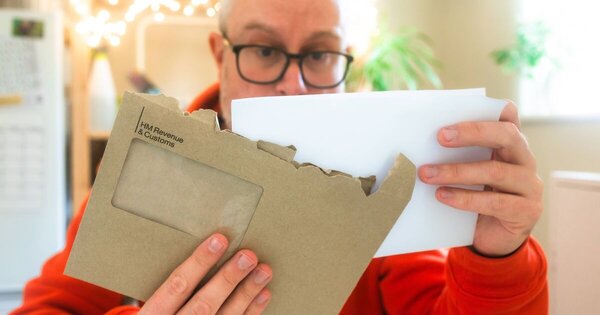Let’s Break This Down Together...
Ever received a letter or message from HMRC asking to confirm your identity and felt a bit uneasy? These checks can sound worrying, but they’re often just routine. This article walks you through why HMRC security checks happen, what usually triggers them, and how to respond safely and correctly.
We’ll also cover how to tell genuine HMRC contact from scams, what to expect once the process starts, and when it might be worth getting professional help. By the end, you’ll feel more confident about what to do if HMRC gets in touch and how to keep your tax record spotless. Let’s dive in.
What are HMRC security checks and why do they happen?
HMRC security checks are verification procedures used to confirm your identity. They also ensure the information in your tax submissions is accurate.
Security checks HMRC conducts are part of their fraud prevention strategy.
They typically get triggered when something looks unusual in your tax affairs. This could be a significant change compared to previous years. Common reasons and the most common reasons for triggering a check include discrepancies, unusual claims, or incomplete information.
These checks range from simple identity verification to more detailed reviews of your income and expenses. Your National Insurance number might need confirmation, for example. Red flags such as large, unexplained deductions or inconsistent income can make a taxpayer the subject of additional scrutiny.
Common triggers that might flag your account for checking
A sudden change in your income or tax situation is one of the most common triggers. HMRC uses risk assessment to identify accounts for review, focusing on areas where the risk of non-compliance is higher. If you’ve earned significantly more or less than before, HMRC might investigate. Red flags such as large refunds, inconsistent declared income, or overclaimed reliefs can also prompt additional checks.
First-time claims for certain tax reliefs often get extra scrutiny. This is especially true for research and development credits or substantial expense claims. Interest income that is not properly declared may also trigger checks.
Inconsistencies between different parts of your tax return will prompt a check. Discrepancies with information HMRC already has from employers will also raise red flags. Additional security checks may be applied if there are discrepancies in declared income or if too much tax has been paid in a given tax year.
Changes to your personal details shortly before making a claim can trigger verification. This includes updating your address or bank account information.
How HMRC conducts its security checks
You might receive a phone call from HMRC’s verification team. They’ll ask questions about your tax affairs or recent submissions.
HMRC sends an official letter to notify you of a security check. This letter often includes HMRC's requests for specific information or requested documents to verify the taxpayer's identity. Responding to HMRC requests and submitting the correct requested documents promptly is crucial to avoid delays and ensure compliance.
Online security questions through your Government Gateway account are increasingly used. These provide straightforward verification options.
Some checks require you to verify your identity through the HMRC app. This might involve uploading your ID or taking a selfie. Confirming the taxpayer's identity is a key part of the process.

How to respond when HMRC wants to check your details
Always respond promptly to HMRC’s requests. When HMRC requests information or documentation, it is crucial to submit the requested documents as soon as possible to avoid delays in processing. Ensuring that all documents are properly submitted and that your responses to HMRC's requests are timely can help facilitate a smoother review.
Only provide information through official HMRC channels. These include their website, letters with your Unique Taxpayer Reference, or callbacks to main HMRC numbers.
Keep your tax records organised so you can quickly provide supporting documents. Submitting accurate and complete records can speed up the process and help address HMRC's requests efficiently.
Answer all questions truthfully and consistently. If you’re unsure about something, it’s better to admit uncertainty than to guess.
For complex cases, consider seeking professional advice from a qualified tax adviser. A tax adviser can help you navigate HMRC requests, ensure you submit the correct information, and provide expert support throughout the process.
Contacting HMRC: Getting the Help You Need
When you’re facing HMRC security checks on your self assessment tax return, knowing how to get support can make all the difference. Whether you’re waiting for a tax refund, have questions about your assessment tax return, or need help navigating a security check, HMRC offers several ways for taxpayers to get in touch.
You can contact HMRC by phone, email, or post, and their online services are available for managing self assessment tax returns, checking the status of tax refunds, and handling other tax affairs. If you’re experiencing delays with your tax return or tax refund, or if you need clarification on tax calculations or tax compliance, don’t hesitate to reach out. HMRC’s dedicated team is there to help you resolve issues, answer questions about your self assessment tax, and guide you through any part of the process.
For the quickest response, use the official HMRC website to access secure online services or find the correct contact details. Remember, getting in touch with HMRC promptly can help you avoid unnecessary delays and ensure your tax affairs are handled smoothly—even if you’re dealing with a security check or waiting for a refund.
Spotting HMRC scams: When it's not really HMRC
Genuine HMRC security checks will never ask for bank details over the phone. They won't demand immediate payment either.
Real HMRC communications don't threaten immediate arrest or court action. Urgent payment demands are a clear sign of a scam.
Be suspicious of emails with attachments. HMRC typically sends links to its secure website instead of attachments.
Always check email addresses carefully. Scammers often use addresses similar to official ones but with subtle differences.
If you're unsure, hang up and call HMRC directly. Use the number on their official website, or log into your tax account independently to check for messages.

Final Thoughts
HMRC security checks are becoming a routine part of the UK tax system. This trend is growing as more people manage their taxes online.
While they might seem intrusive, they protect honest taxpayers from fraud. Such fraud costs the system billions of pounds each year.
Being prepared and keeping good records helps you navigate these checks smoothly. Prompt responses also minimise stress during the process.
Remember that legitimate HMRC checks always give reasonable response time. They also provide clear ways to verify that the communication is genuine.
Simplifying HMRC Security Checks
Good tax housekeeping is the best way to avoid triggering unnecessary security checks. Maintaining consistent, accurate records is key.
Pie., the UK's first personal tax app, offers real-time tax tracking that prevents inconsistencies. This reduces the likelihood of verification checks triggered by sudden changes.
Our direct HMRC filing feature ensures your submissions are formatted correctly and complete. This minimises queries from tax authorities.
The multiple-income dashboard gives you a clear overview of your tax position. This makes it easier to explain any changes that might raise flags with HMRC.
Fancy seeing how it works? You can explore the Pie app today to see how it could make your tax life simpler.










